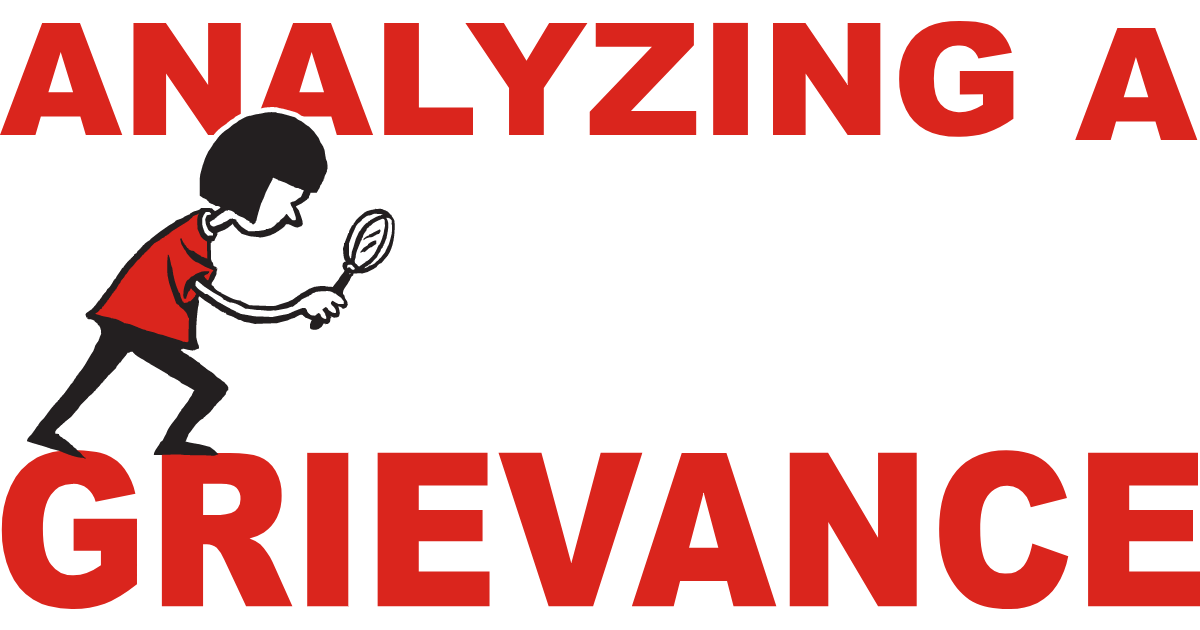
Analyzing a Grievance- How far do we go with it?
First thing while analyzing the grievance, we must re-visit the question, “What is a grievance?”
- Has there been a violation of the contract?
- Has the worker been treated unfairly and differently than other workers?
- Has there been a violation of established past practice?
- Has there been a violation of Federal or State law?
- Has there been a violation of a previous grievance or arbitration settlement?
Who makes the decision on going to arbitration?
It is the union that should make the decision on whether or not to take the case to arbitration, not just the individual involved.
This is because the contract belongs to all the members, and the money spent on arbitration belongs to all the members. Often times there are issues involved that could hurt the members if an arbitration rules against the union. This can make for difficult meetings when a member feels he or she has been wronged but there is not a strong enough case for the union to be convinced it can win. It is difficult when an injustice has occurred but there is no contract language that addresses the situation. Stewards must remember that most contracts say that an arbitration can only interpret the contract, not add to it.






